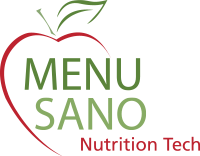A balanced diet composed of nutritional foods is vital for growth and wellbeing during the early stages of life. It promotes the biological processes required to grow and thrive. Eating a nutritious diet is essential for both physical and mental development. Insufficient consumption of food and a nutrient deficient diet are the major cause of early age mortality and morbidity. While food scarcity is an issue for some socio-economic groups, we are also witnessing new health issues as a result of an overabundance of food availability and over-consumption in children.
Why are nutritional foods important for kids?
Usually kids are very fussy about their foods and it is a tedious job to encourage them to eat healthy nutritious foods. Daily requirement of vegetables in toddlers and early school goers are often replaced with French fries as their food of choice, instead of salad. Therefore, children typically consume significant amounts of energy-dense, poor nutrient containing foods, which is an underlying cause of increased predominance of early aged obesity.
Usually kids are very fussy about their foods and it is a tedious job to encourage them to eat healthy and nutritious foods. The requirement of vegetables in toddlers and early school goers are often replaced with French fries as their food of choice, instead of salad. Therefore, children typically consume significant amounts of energy-dense, poor nutrient containing foods, which is an underlying cause of increased predominance of early aged obesity.
Read more: The Benefits of Labeling Software for your Restaurant
Factors of eating influences for kids
Breastfeeding is essential for the first 6 months after birth as it helps a child to develop response against hunger and cues of satiety. Early feeding plays an important role in the development of eating behavior of a child in later stages of life by imprinting metabolic functioning at the early stage. During this period, a nutritionally diverse diet of the mother is required to achieve adequate growth of infants. In addition, the child experiences different flavors of foods exerted through breast milk, which may influence the acceptance or rejection of food items during the transition of liquid to solid feeding. Kids develop only sweet and salty taste buds at the early phase of life. Therefore, acceptance of bitter flavours present in certain vegetables is difficult for them. Repeated exposure of bitter flavours through mother’s diet during breastfeeding helps the child accept bitter flavours at the later stage of life. The mother needs to explore the taste of different vegetables and fruits during breastfeeding. This not only develops food acceptance of a child but also provides adequate nutrients for the mother.
Dietary choice and feeding strategies depend on parental feeding practices. Nutritious food selections, including a large number of fruits and vegetables in the diet, along with good eating habits, prevent malnutrition, as well as childhood obesity. Children often develop their eating habits by observing others. Therefore, eating together in a family or social setting, and selection of nutritious diet provide a positive influence for children to accept healthy eating habits both at home and away.
Read more: Your Family Nutrition
How a nutritious diet affects early development in children
Pregnant women should take special care of their diet to meet all nutritional requirements during the gestation period, as adequate nutrition is crucial for complete fetus development. Health Canada recommends six-month exclusive breastfeeding after a childbirth. A lactating mother must take nutritious diet including an adequate amount of carbohydrates, protein, vitamin A, C and D, calcium and iron to assist in producing breast milk that is comprised of all the essential nutrients for infants and also to replenish mother’s health. If the mother is consuming a healthy and nutritious diet, then the children also become healthy. Breastfeeding imparts a prophylactic effect against ear infection, diarrhea, and bacterial meningitis. However, genetic sequence and environmental influence also have a role in the healthy development of an infant. After six months age, the diet pattern shifts from liquid to semisolid and then to solid foods. Henceforward, children need to develop their own eating habit. Reduction of activeness, indifferent attitude and poor cognitive functioning are common symptoms of malnutrition or inadequate supply of food. For example, in the first two years of age, iron plays a vital role in brain tissue development and its deficiency can cause permanent brain damage, delayed psychomotor development and behavioral disorders. Alternatively, excessive iron intake can cause constipation and should be avoided.
In the early stages of life, brain development is faster and requires adequate nutrients. Nutrients are required for DNA synthesis, brain cell growth, metabolism of hormones and neurotransmission, and to provide vital elements for the ultimate performance of the enzyme systems in the brain. Academic performance also depends upon the consumption of nutritional foods. Research studies provide evidence that early dietary intervention can impact the academic performance of children later in life. Several essential nutrients like omega-3 fatty acids, vitamin B12, folic acid, choline, iron, iodine, and zinc perform different physiological functioning to improve and develop cognitive functioning in children. In addition, skipping breakfast can provide a negative impact on cognition.
It has also been found that nutrition is an external silent environmental factor, which can directly affect gene expression. Poor nutrition during pregnancy increases the risk of cardiovascular, lung, kidney, and metabolic disorders and impaired mental health in the offspring. During first two years of child’s life, persistent mild malnutrition can cause several mental developmental issues, including the slowdown of visuospatial functions, decrease in IQ level, attention deficiency, learning inability, and poor reasoning which can negatively impact academic performance. Sometimes experts prefer to recommend some food supplements to fulfill these requirements.
Read more: Restaurant Technologies that Improve Business
Some essential nutrients and their role in child health development
- Carbohydrates (preferably complex carbs) assist to maintain energy level.
- Proteins are building a block of the physiological system and essential amino acids help in DNA synthesis, which is important for genetic development and proper gene expression.
- Lipids and fatty acids, such as DHA and EPA play several roles in physiological development, including maintaining cellular integrity, hormonal activity, neurotransmitter release, cytokines secretion etc.
- Certain vitamins like beta-carotene, alpha-tocopherol, some minerals and phytonutrients extracted from plant-based foods have potent antioxidant property, which assists to boost immunity and can prevent chronic illness, including autism, fibromyalgia, attention deficit hyperactivity disorder, multiple sclerosis, etc.
- Vitamin K regulates calcium level and has blood coagulating property.
- Calcium is an essential mineral for bone growth and teeth development. It also regulates cardiac functioning and neurotransmitter release.
- Zinc plays a major role in protein synthesis and regulates gene expression.
- Choline inhibits cortisol release and decreases burnout, stress and fatigue symptoms.
Protein is an essential nutritional element for growth, but recently it has also been found that a high protein diet at an early age can negatively affect puberty and increase the risk of obesity. The World Health Organization and the Food and Agriculture Organization recommend 0.9 g/kg/day protein intake from 3 to 18 years of age for boys and from 3 to 15 years of age for girls. Moreover, consumption of excessive sugar and fat containing high-calorie foods must be avoided which enhances oxidative stress and influence weight gain.
Read more: A Simple Guide to Different Types of Vitamins
Conclusion
Health is wealth and the nutritional value of food plays an important role in our wellbeing. MenuSano’s aim is to educate our customers and audience about the importance of nutritious and healthy eating. Our nutrition analysis software is being used by many leading restaurants, hospitals and health conscious individuals. It is economical and delivers exceptional value of your money. We are committed to your wellbeing and better health.



















